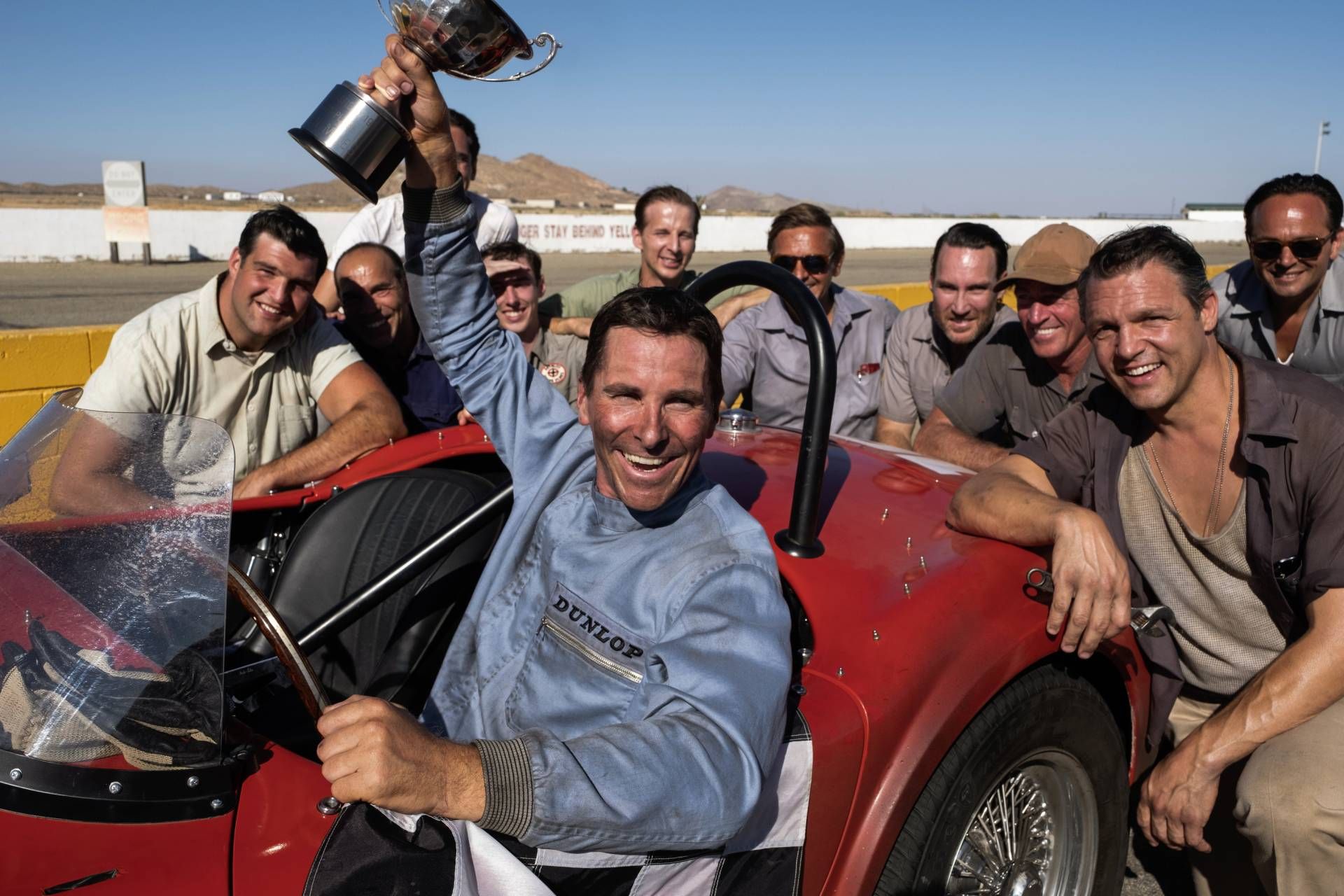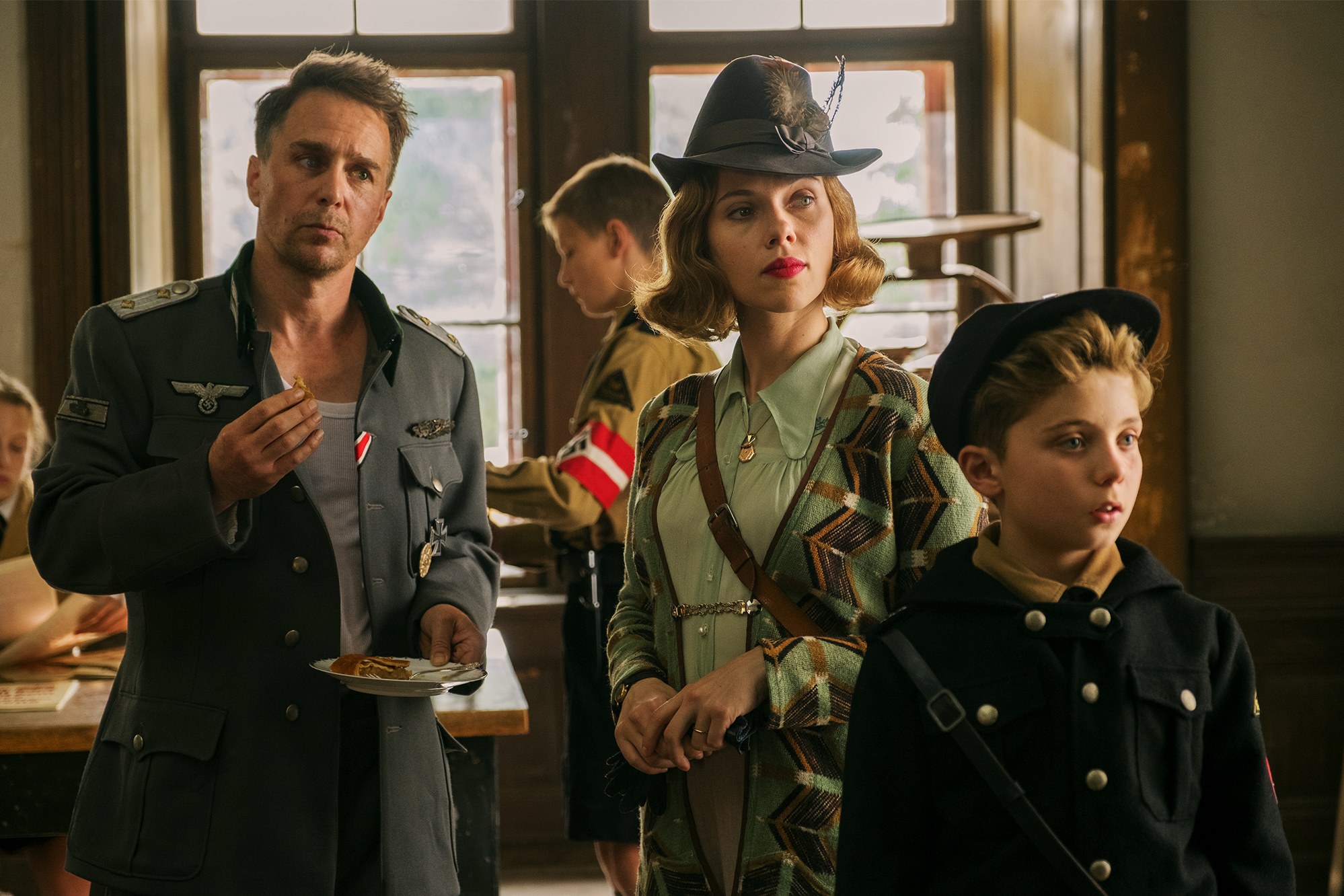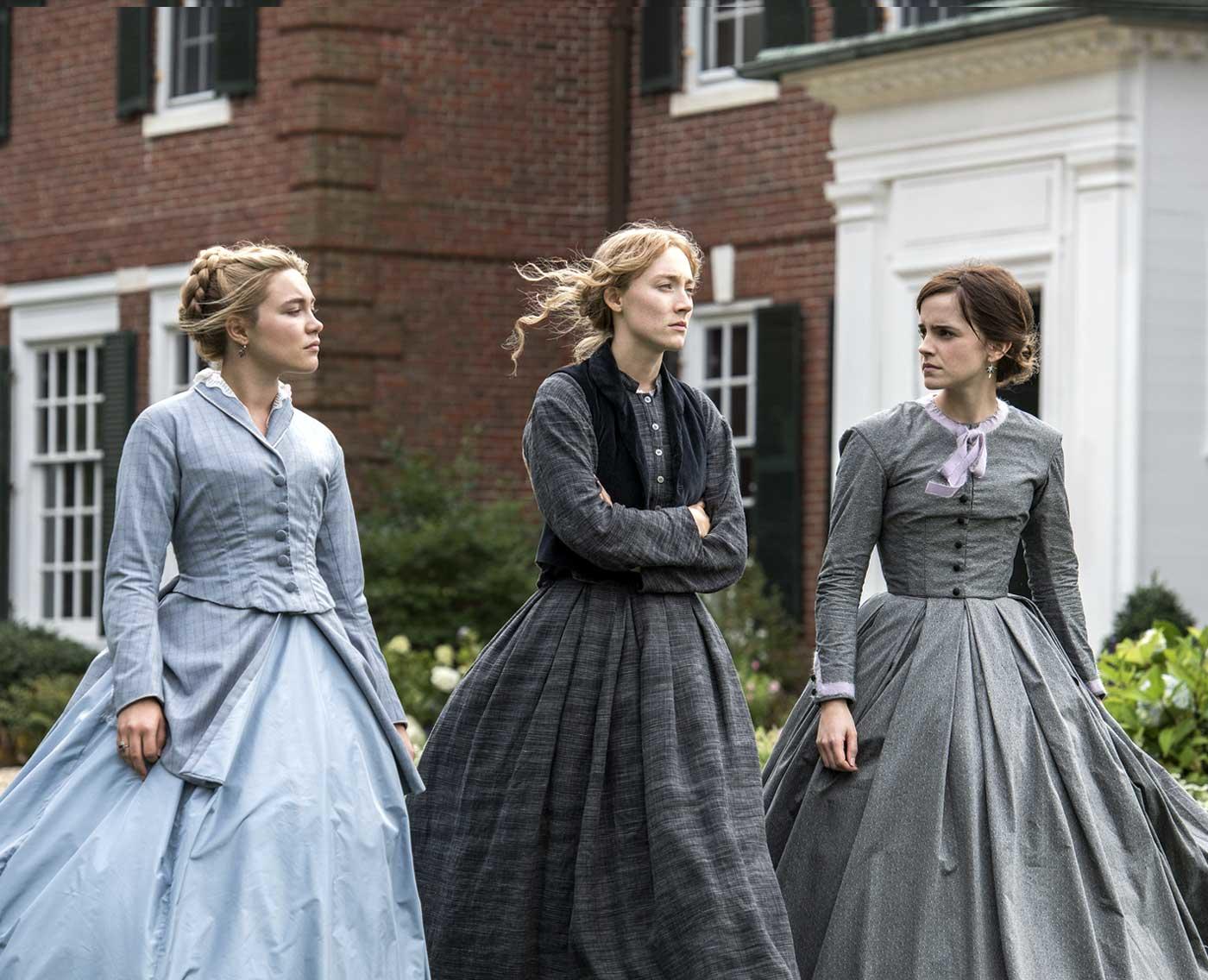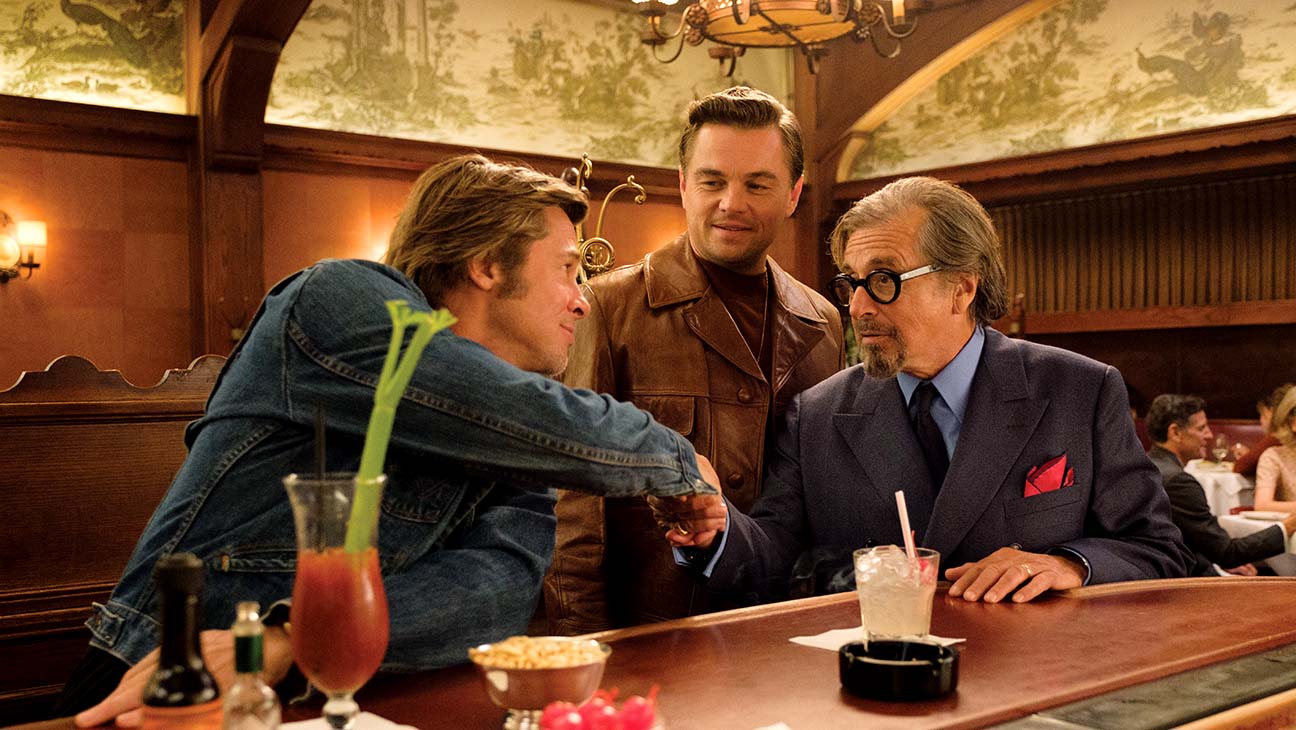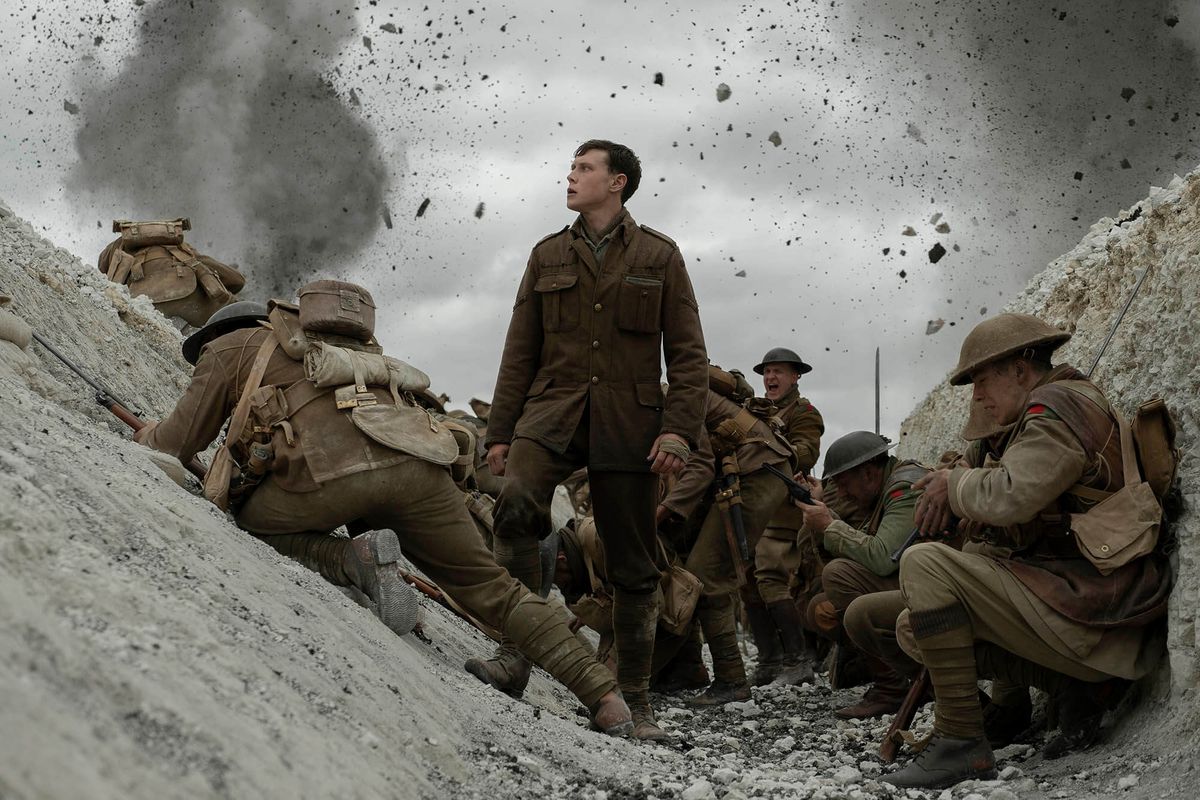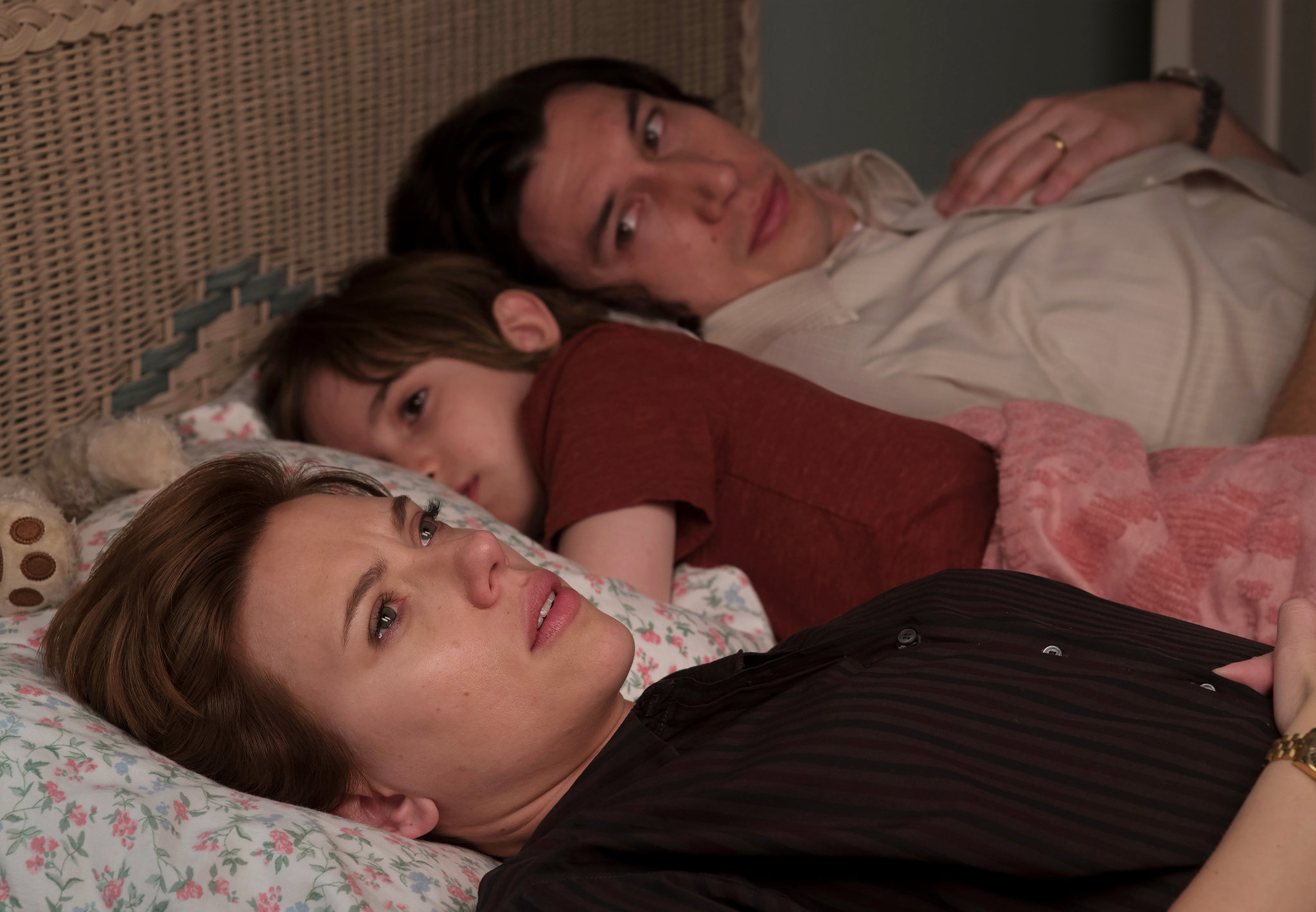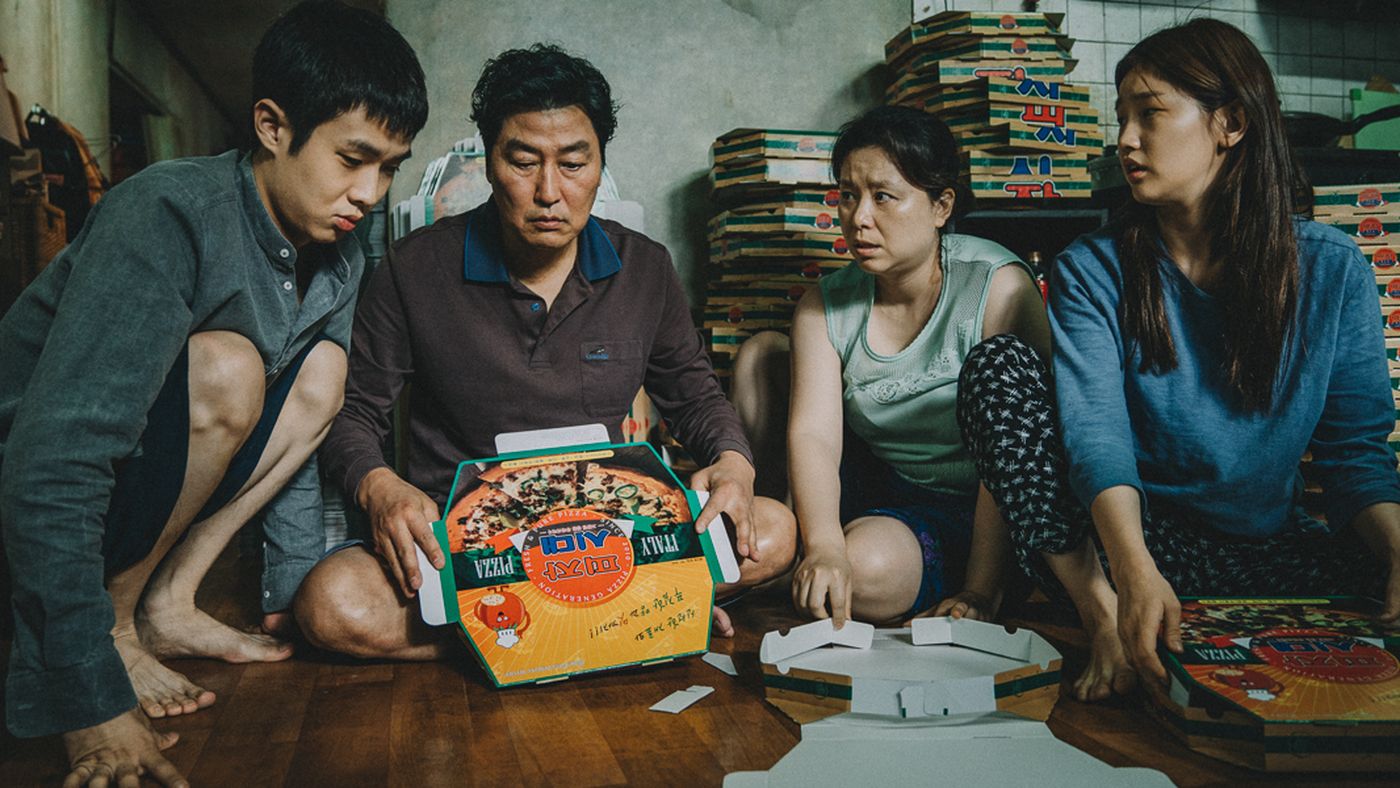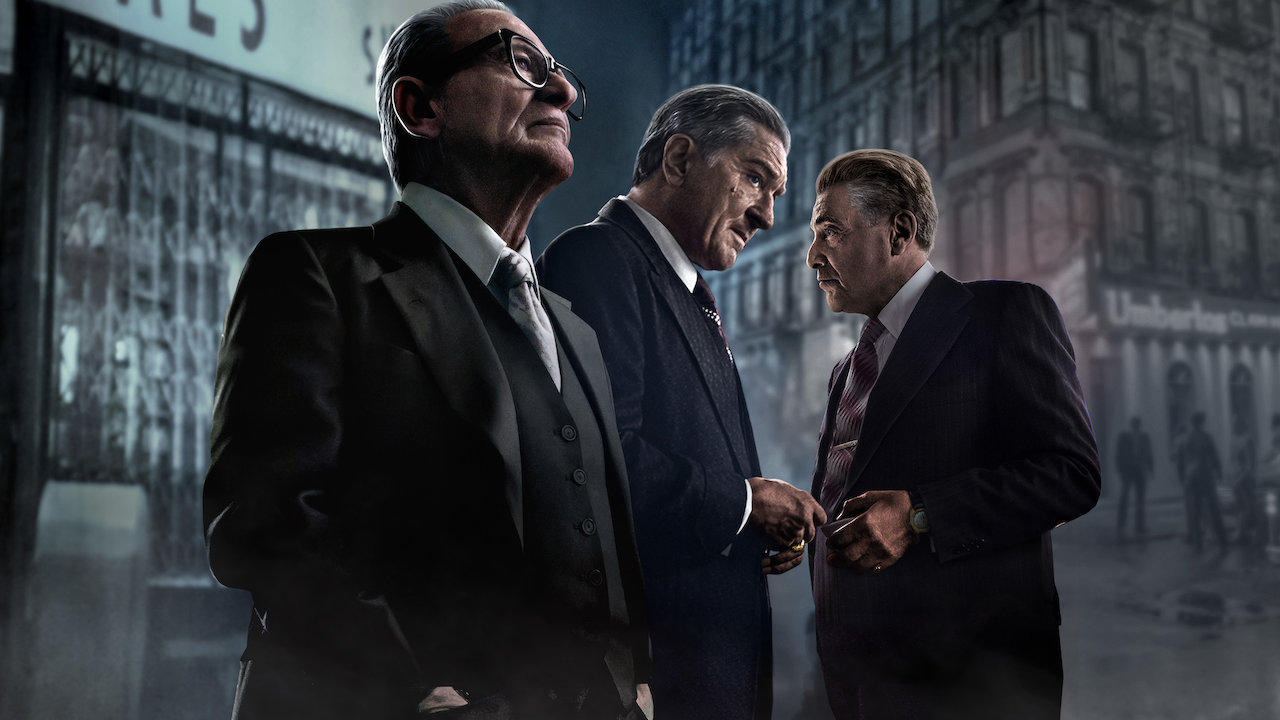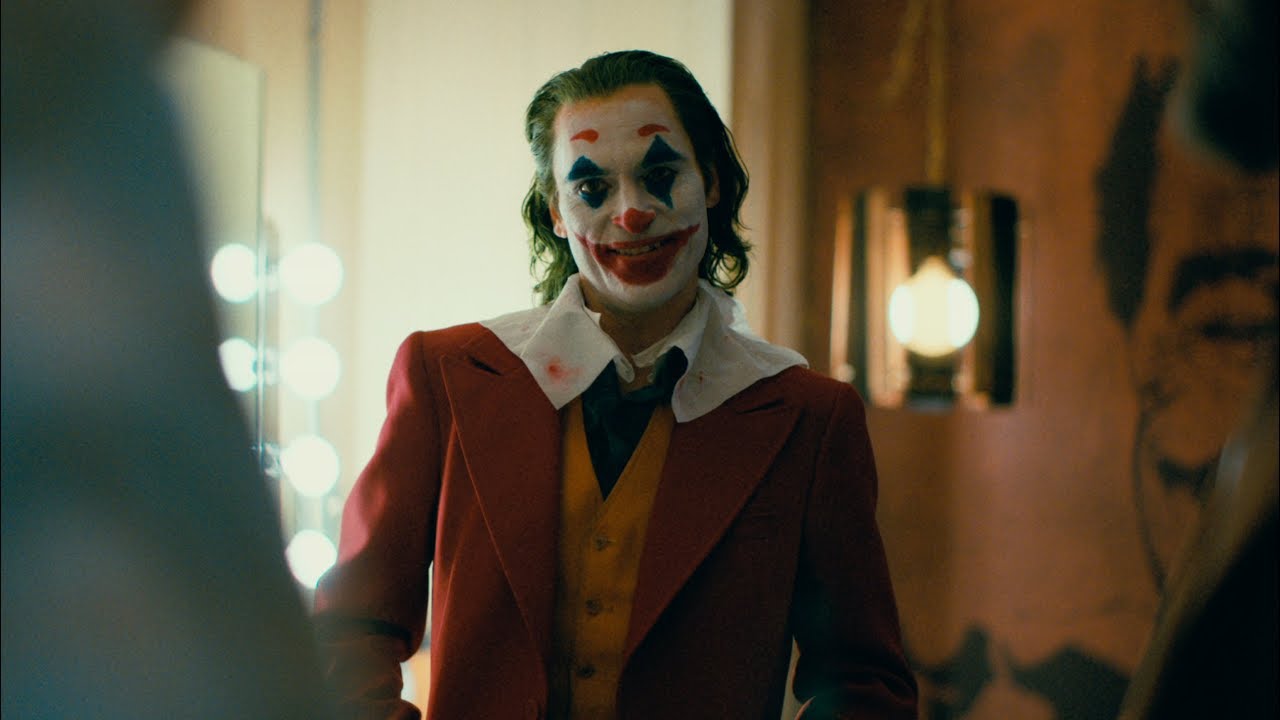9. Ford v. Ferrari
Truth be told, the only reason Ford v. Ferrari is so far down the list is that there were just so many heavy-hitters from last year. I found the film to be the perfect blend of high-octane sports action, biographical drama and comedy. Director James Mangold’s exhilarating visuals coupled with fun, magnetic performances from Christian Bale and Matt Damon made Ford v. Ferrari a thrill ride from start to finish. That being said, it’s a little lighter on thematic complexity and innovative character development in comparison to the rest of the competition. For what it’s worth, Ford v. Ferrari still belongs in the fast lane.
8. Jojo Rabbit
As far as anti-war satire films go, Taika Waititi’s Jojo Rabbit just might be the best I’ve seen in a long time. Waititi brilliantly juxtaposes the hateful, fascist ideology of Nazi Germany next to the insecure, growing pains of a little boy played by Roman Griffin Davis. Beyond merely being a great coming-of-age comedy of love conquering hate, Jojo is an exorcism of the looming spectre of romantic violence. A powerful takedown rounded out by dazzling writing and a heart-melting, adorkable and strangely disarming performance by Scarlet Johannson as Jojo’s mother. If my kids ever grow up in a totalitarian fascist state, I’ll be sure to be the “cool” social deviant parent with a copy of Jojo.
7. Little Women
Greta Gerwig’s vision of a post-civil war America through the perspective of working-class women is a poignant and powerful tale of family, self-actualization, struggle and identity. Little Women’s dizzying symphony of subplots bouncing between Saoirse Ronan’s Jo March, Emma Watson’s Meg, Florence Pugh’s Amy and Eliza Scanlen’s Beth March never failed to captivate or build upon the layers of experiences that one must encounter through the trials of womanhood. From heartbreak to job security to marriage to motherhood. Like watching the seasons change before your very eyes, Little Women is a work of art that lives, breathes and is in constant motion. Even after the credits roll, I cannot help but wonder the future fate of the March clan.
6. Once Upon a Time in Hollywood
What a hell of a show! Never has the wanton debauchery, runaway egos and seedy vices of Hollywood looked this good. It’s almost impossible to turn away from the ecstasy and madness of Tarantino’s semi-fictionalized version of Hollywood in the 1960s. Some may argue that Leonardo DiCaprio and Brad Pitt are simply playing heightened versions of themselves. To the critics I say: it’s one of the greatest performances of their whole careers. It takes a lot of humility and a ton of confidence to make shithead versions of themselves feel this charismatic, relatable and at times pathetic. Tarantino’s dialogue is ever on-point and with a final action setpiece that will leave your cheeks swollen and your jaw numb with shock and laughter, he has solidified a comfortable middle-spot on our list.
5. 1917
Not since 2014’s Birdman by Alejandro G. Inarritu have I seen a film so marvellously master the art of the tracking shot. The technique at its worst is a neat gimmick but at its best, it is a sublime tool to create atmosphere, perspective and information as the camera intricately follows a single event or character in motion. Films are so often seen through a sequence of segregated events split into chapters and scenes, like a storybook. Sam Mendes’ 1917 is nothing like I have ever seen before. It is a horrific singular, continuous event that is experienced through the eyes of two soldiers sneaking through enemy territory to deliver a message of paramount importance. One long day that seems to never end. Just as events are more than the sum of its characters, time, location and context, 1917 is a triumphant example of how techniques can elevate storytelling, characterization and cinematic immersion.
4. Marriage Story
The pervading theme of nearly every Noah Baumbach film I’ve seen so far is the belief that humanity is fundamentally broken and yet functional. We tear, maim and claw at ourselves and those around us but there is grace in our folly and perhaps even hope. Now more than ever do we need a vision of that hope in a post-Everybody Loves Raymond world. A hope that isn’t built on noble virtues and ideals than it is on humbling comprises and painful lessons.
Baumbach’s Marriage Story is traditionalist romance being shot in the knee-caps before learning to walk again and it is easily one of the best films of yesteryear. Watching Scarlett Johannson and Adam Driver’s Nicole and Charlie’s escalating war of emotional attrition is both a deeply satisfying and unsettling experience. The true hallmark of its supremacy can be expressed in my inability at times to tell distinguish reality from fiction, and often it feels far too real.
3. Parasite
Boon Joon-ho has made something of a reputation of himself as both auteur and social critic of class struggle and capitalism. With films like 2013’s Snowpiercer being a physical embodiment of social stratification based on classes and 2017’s Okja a scathing critique of commodification and authenticity. Each of them a unique, genre-transcending piece in themselves but in 2019, the man has truly outdone himself with what could arguably be the magnum opus of his career, Parasite.
Never has there been a more pointed attack on the symbiotic (or rather parasitic) relationship of the upper-middle class and the working-class subordinates under them. A tale of how one family exemplifies the benefits, angst and resentment bred within the boss-employee power structure. Boon’s remarkable ability to bounce between levity, drama and horror makes Parasite a film impossibly unpredictable and remarkably memorable. And while Parasite might not exactly be my first pick for “Best Picture”, I certainly won’t contest its achievement.
2. The Irishman
Scorsese has shown us almost every facet of the criminal underworld. We’ve seen its dazzling highs in The Wolf of Wall Street, the personal price you pay for it in Goodfellas and the betrayals that come with the territory in The Departed. It seems fitting that in his golden years he shows us the twilight of an ageing gangster’s life in The Irishman. Following Robert De Niro as the mob hitman, Frank Sheeran was a lifelong experience that saw him enter the game and leave it in a manner that is rarely portrayed on screen.
By the end of it all, he is a portrait of a man out of time. One full of regrets and memories that only seem brighter as he feels the creeping hand of the reaper inch ever closer. Scorsese’s The Irishman marks the death of the old school mobster epics of the 80s and 90s but by God, he did not go gentle into that good night!
1. Joker
No genre film has proven more prominent and meteoric in rising than that of the comic book film trend. In its wake, we’ve seen blockbusters, deconstructions and subversions of the genre and now we’ve reached a new frontier in Todd Phillip’s Joker. Nolan began the good work in 2008’s The Dark Knight and Phillips has brought it to completion. A film marked with seemingly endless controversy and praise. A divisive piece of art borne out of the rampant pedestrianism of an oversaturated market from a genre so thoroughly milked dry.
Joaquin Phoenix stared into the hollow abyss of societal isolation and came back with a performance that can only be described as downright prophetic. What more can I say about Phillip’s Joker that hasn’t been said in countless other reviews and pieces? Joker is the “Best Picture” of 2019 regardless of what the Foreign Press may think. Maybe, they simply didn’t get it.
